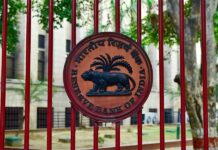The Supreme Court of India, in its decision dated 11 August in Chief Controlling Revenue Authority v Costal Gujarat Power Ltd and others, decided the stamp duty that would be payable on an indenture of mortgage created by a borrower in favour of a security trustee as security for financing obtained by the borrower from a consortium of 13 lenders.
Costal Gujarat Power obtained financing from a consortium of 13 lenders. The consortium appointed State Bank of India (SBI) as the security trustee. Costal executed an indenture of mortgage in favour of SBI and paid ₹421,000 as stamp duty on the document. The revenue department contended that the stamp duty payable on the document was ₹5.46 million, based on section 5 of the Gujarat Stamp Act, 1958, which states that instruments comprising distinct matters or transactions would be chargeable with the aggregate amount of the duties with which separate instruments, each comprising one such matter or transaction, would be chargeable.
Court decisions

When the matter was taken up before the Gujarat High Court, the court held that stamp duty is payable on instruments and not on transactions. The court held that there was only one instrument creating a mortgage in favour of SBI, which alone had the power to enforce the document. The court further held that no rights in the mortgaged property were created in favour of the secured parties. Accordingly, the court held that the indenture of mortgage did not involve either “distinct matters” or “distinct transactions”.
The revenue department appealed against the high court decision before the Supreme Court of India. The Supreme Court observed that it appeared from the security trustee agreement that Costal entered into separate loan agreements with the 13 financial institutions and the instrument of mortgage came into existence only after the separate loan agreements were executed. Based on this observation, the court deduced that if Costal had entered into a separate mortgage deed with each of the 13 financial institutions to secure the loans granted by them, there would have been a separate document for the distinct transactions. Consequently, the court held that the indenture of mortgage could safely be regarded as 13 different transactions, which would be covered by section 5 of the Gujarat Stamp Act.
You must be a
subscribersubscribersubscribersubscriber
to read this content, please
subscribesubscribesubscribesubscribe
today.
For group subscribers, please click here to access.
Interested in group subscription? Please contact us.
你需要登录去解锁本文内容。欢迎注册账号。如果想阅读月刊所有文章,欢迎成为我们的订阅会员成为我们的订阅会员。
Implications

The Supreme Court decision has far reaching implications for banking and finance transactions. Borrowers may now have to factor in a proportionate amount of the loan as stamp duty cost. The decision could therefore affect the availability and costing of loans, and the willingness of borrowers to provide security, as demanded by a financial institution.
The indenture of mortgage was a single instrument of mortgage executed by Costal (in its capacity as the mortgagor) in favour of SBI, i.e. the security trustee (in its capacity as the mortgagee). This relationship would be independent of the relationship between the security trustee and the lenders, which would be governed by the security trustee agreement. As the security trustee agreement was entered into to create a separate single transaction of mortgage in favour of the trustee, it could be construed to be a single mortgage transaction in favour of the trust. Instead, the Supreme Court looked at the beneficiaries of the trust, which could be a large number in certain cases.
For instance, in the case of issuance of debentures, where the security is created in favour of a debenture trustee, which holds it on behalf of the debenture holders, such documents would need to be considered as transactions with each debenture holder. Moreover, the number of beneficiaries in such lending arrangements is not fixed and not the same as at the time of origination. Accordingly, such an interpretation would raise the question of whether stamp duty would have to be paid whenever a lender is added to the transaction.
The Supreme Court decision was specifically in relation to section 5 of the Gujarat Stamp Act, which, unlike the Maharashtra Stamp Act, 1958, and the Indian Stamp Act, 1899, uses the term “distinct transactions” in addition to “distinct matters”. It may be argued that creating security on behalf of lenders in favour of a security trustee should not be considered as distinct matters merely because it is pursuant to separate lending obligations of the lenders. Accordingly, it will be interesting to see whether the revenue departments of other states raise a demand based on the concept suggested by the Supreme Court.
It has always been a basic principle of stamp duty law that stamp duty is to be levied on the instrument and not the transaction. The instrument in question was a single deed of mortgage between Costal and SBI. This decision of the Supreme Court is likely to complicate stamp duty issues further.
Babu Sivaprakasam is a partner, Deep Roy is an associate partner and Megha Agarwal is an associate at Economic Laws Practice. This article is intended for informational purposes and does not constitute a legal opinion or advice.
109 A Wing, Dalamal Towers
Free Press Journal Road
Nariman Point, Mumbai – 400 021, India
Tel: +91 22 6636 7000
Fax: +91 22 6636 7172
Email:BabuSivaprakasam@elp-in.com
DeepRoy@elp-in.com
Mumbai | New Delhi | Ahmedabad | Pune | Bengaluru | Chennai



























